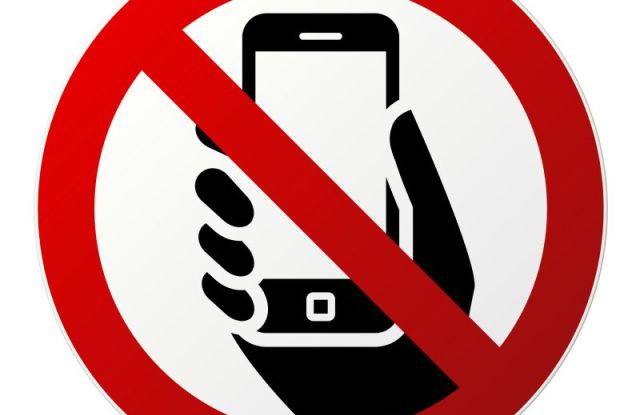Why we need to abandon everything

 It’s so hard to see, much less get rid of, all the things that have taken up space in our hearts – space that God
It’s so hard to see, much less get rid of, all the things that have taken up space in our hearts – space that Godhimself wants to fill. We may sense, but often can’t see the way various
attachments crowd out the abundant life that God wants to give us. That car you take such good care of may, in a way, keep you from sponsoring an orphan through World Vision.
Abandon is the process of taking our hands
off of those things that we have clutched to our breast. It is a process
that involves turning away from them and renouncing rights to them. It
is an emptying that clears away emotional space for new attachments.
Because
we in America have so many things cluttering our lives, it’s hard to
know what keeps us connected to the identity we present to the world – our false self. The obvious things are
clear enough: the addictions, the broken relationships, the stuff that
fills our garage. But behind all that is no less an array of attachments
that may keep us locked down in a spiritual or emotional prison that we can’t see.
Attitudes
and habits are often invisible to the person who owns them. You may
laugh at Debbie Downer on Youtube, but be the last one to see how your
wet-blanket comments keep people at arms length. Your cynicism may win
you other cynical friends, but prevent you from getting to a place of
intimacy with them.
Perhaps the most invisible of
attachments, those most difficult to perceive, are those that are
culturally defined. If all your friends are spending their evenings on
the computer, for example, you may not see the way in which it limits
your emotional range. Leave your own culture behind and you may be
amazed at the things you thought you needed but really don’t. It may
blow your mind when you visit Mozambique to see that when the mothers run out
of milk for their babies, they pass them on to their friends to
breastfeed. You may find yourself charmed by the simplicity of life in
many other countries. You may wonder about the choices you made that got
you to such a dissatisfyingly complex lifestyle before you left.
And
because we may have so many things crowding out the life of God
and creating room for the false self in our lives, it’s better that we
not try to piecemeal the process of abandon. It’s better to do what
Jesus asked of those candidating to be his disciples – leave everything
and do it now. Total abandon requires the leaving of places and
relationships. It requires the quitting of commitments, some potentially
good. And because it requires leaving, a journey is required.
onlookers, inevitably this will look reckless. And when what you find
on the journey is pain, it may look downright dumb. But suppose that in fact you may be unable
to see all the things that have you locked into an identity that is false, one based on posing. Let’s further suppose that you are committed to discovering who God intended you to be and what
he made you to do. If in fact these are true, then this process of reckless abandon that takes you on a
journey away from home and comfort may be the smartest, bravest thing you ever do.
along the way. That’s the price of going along a narrow path that has
just one safety net – God himself. But as you set your feet on that path, you commit to finding your true self and to a life defined by faith. You
commit yourself to living a life where your life’s priorities match God’s.



This is a great blog with really good insights! Total abandonment is something I have wrestled with for a long time, and still do. It is easy to follow God when it is something I’ve always wanted to do. However, it is much harder when God’s will for my life is different than the plans I made.
Thanks for writing this. What a beautifully written message.
We sing a song with this line, “He will not relent until He has it all.”
That always surprises me. It is not that He forces you to give it all but that He is patient until He shows you that all is what is best for you anyway. Level by level He strips away the world. We in self-sufficient, indulgent America have a lot of layers to remove.
What you are discussing today Seth, is sovereignty; God’s unquestioned ability and undeniable right to hold first place in our lives. The journey you speak of is a quicker way to arrive at that knowledge and it is often a way that the Lord chooses to present us with to take us there. There are other ways too; remaining in a loveless marriage, recovering from a life of abuse, or daily walking out a life of humility with a servants heart in a ministry that elevates us to a place of prominence before others.
Any path like these has the ability to strip us to the place of being completely dependent on God. That is what it takes. Of course you must choose to make Him sovereign. You must place Him and Him alone in that first place. If we believe that “all things” are indeed for our benefit than what we learn is to TRUST HIM. Sometimes the things in our lives seem to be terrible and not of our own choice, but they can be the very thing that God will use. He may not have “set it up” but He will take advantage of the opportunities we and others get us into. Sometimes these things seem like everything is great but leave us hollow and wanting. This too is an opportunity to learn to keep Him first.
The journey you are talking about can be a fast-track letting us see quickly the difference between a life of indulgence and a life of dependence. No matter what track God has you on, open your eyes to see what all of them inevitably lead to, He wants all of you changed into a true reflection of His son. Nothing else will do.
YES, YES – is what my spirit cries out to this…. Listening to hear what Jesus says to do next and when…
awesome.. that will but a boot in your back side…
And I am on that journey, all of me. Inside, outside, even the banged up car is at the body shop. And just found out I will be needing to dissolve my parent’s apartment over the next couple of months. Almost 50 years of life lived there, with the books and records (remember them!?!?) that my dad collected. I don’t want to abandon recklessly as in heave it all…but thoughtfully and carefully, liquidating, and giving that money away, saving a few things, but not so many that they trap me. Am going through the same process at my home also. It is truly freeing.
Thanks for the encouragement.
Dude, this stuff fires me up. With everything going on in my head right now, this has put me into a higher gear. Love you man.
Thanks Seth for the prophetic prod. I’ve been learning that the worst place anyone can be is that outlander’s mindset of saying… “I’ll throw in all the chips but save a bunch in hiding to hedge bets in case God isn’t faithful”. One of the greatest blessings in my spiritual life was to lose everything in a divorce I didn’t want. The sheer weight of the “stuff” was squeezing out deep breaths of the Holy Spirit. If we know anything about Jesus He “lived light” and wasn’t half hearted. There is no halfway to wholeness.
I just checked back on your blog Seth, it’s been awhile. I was encouraged by a number of your articles. I particularly enjoy the news-type stories that never make it mainstream (like the flooding in Pakistan). Your theme on brokenness also has hit close to home for me. Keep up the good work.
I’ll admit I felt a little down after reading this post though. The reason is, I would like to abandon all and do something exciting and adventerous like explore the world on the World Race. But I know God is calling me to be faithful in the daily grind right here: behind a desk, ministering to my co-workers, the members of my local assembly, and my family. Faithfulness in my life doesn’t look glamorous. It doesn’t even make that good of a story (not like, “there I was, laying in the pitch dark in a mud hovel listening to the eerie sounds of the distant roll of drumbeats and chanting as beads of sweat rolled off my body…”)
I HAVE made drastic changes to my lifestyle in comparison to the culture at large (even Christian culture) in regards to simplifying life. I desire to follow Jesus in my practical life.
But my call is to be a “home missionary,” and I embrace that and am ok with it. For me, leaving isn’t part of the picture. As much as I wish it were. Not now anyways.
Good to hear from you, Nick. I appreciate this perspective. This helps me as I think of it. There’s always the question of timing. My message concerning our need to go on a journey is more directed to young people and to those of us older types who are in a transition place and have the opportunity.
Thanks for being consistent and for persevering!